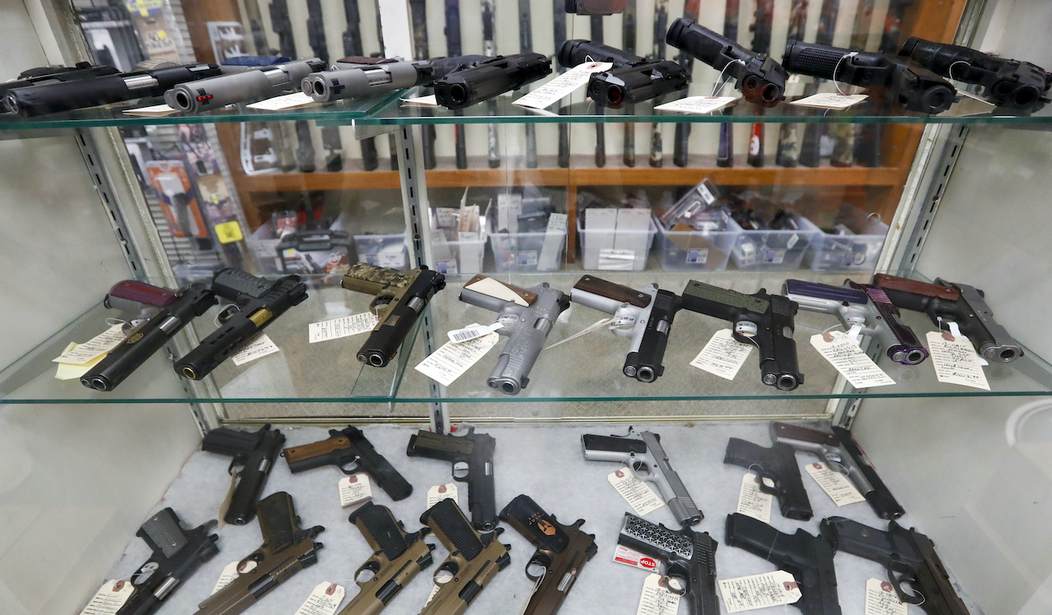The other day I reported on a lawsuit filed by the Second Amendment Foundation through the Firearms Industry Consulting Group, in Pennsylvania. The lawsuit, Schmidt, et.al. v. Paris, et.al., challenges a policy that Montgomery County Sheriff Sean Kilkenny implemented, which strips Fourth Amendment rights of licensed firearms dealers in the county. The policy set by the sheriff is a piggy-back on a state police regulation concerning site inspections, which never had any legislative intent. After filing, we have come to learn that Sheriff Kilkenny, along with the plaintiffs, have entered into a stipulation agreement, voluntarily staying the enforcement of his policy.
As our readers are aware, earlier this week, Chief Counsel Joshua Prince and attorney Dillon Harris of the Firearms Industry Consulting Group, a division of Civil Rights Defense Firm, P.C., filed suit in the Commonwealth Court on behalf of Grant Schmidt, Shot Tec, LLC, and the Second Amendment Foundation (SAF) against Pennsylvania State Police Commissioner Christopher Paris and Montgomery County Sheriff Sean Kilkenny relating to the PSP’s promulgation of an unconstitutional regulation purporting to authorize warrantless searches of PA License to Sell Firearm licensees and Sheriff Kilkenny’s policy, beyond the scope of the unconstitutional regulation, to not only seize licensees in the absence of probable cause and a warrant, but to also force them to respond to questions and provide any requested documents.
Today, Petitioners/Plaintiffs entered into a Stipulation with Montgomery County Sheriff Kilkenny, wherein, he agreed to stay enforcement of his firearm license inspection policy and for the Commonwealth Court to issue an order enjoining him and and his officers, agents, servants, employees, and all persons in active concert or participation with him from implementing or otherwise enforcing his firearm license inspection policy, until a final decision is rendered by the Commonwealth Court.
It’s really great to learn that the parties were able to come to an agreement, at least while the litigation plays out. The stipulation itself does note though that defendants are not removing themselves from the conflict, and do intend on defending the policy.
Given the legal issues raised in the Petition for Review and to allow this Court sufficient time to review them, Respondent Sheriff Kilkenny agrees to stay enforcement of his recently announced policy of inspecting Pennsylvania License to Sell Firearm licensees,1 and to this Court issuing the attached order related thereto.
Respondent Sheriff Kilkenny intends to respond in opposition to the Petition for Review, and this Stipulation shall not be interpreted as a waiver or limitation on the Sheriff’s ability to oppose and raise his defenses to the substance of the Petition.
Respondent Commissioner Paris has no objection to the Court issuing the attached order.
While this is not a slam-dunk, when it comes to the complete abolishment of the policies, this is a giant win. The plaintiffs, along with any other potentially aggrieved parties within the county and state, will gain relief from potential unconstitutional inspections that violate Fourth Amendment protections. In addition to repatriation with Fourth Amendment protections, dealers won’t have the threat of license revocation hanging over their heads from failure to comply.
Congratulations to Prince, the Second Amendment Foundation, and to Schmidt for this victory. The entire case is not in the bag though. It’s telling that the sheriff agreed to the staying of his own policy. Under Fourth Amendment protections alone, this case should be fairly simple. With the NYSRPA v. Bruen decision also in the quiver, defendants are going to have a rather weighty responsibility trying to come up with analogues to their “show me me your papers” policies. We’ll be watching the progress of this case as it continues through the court system.







Join the conversation as a VIP Member